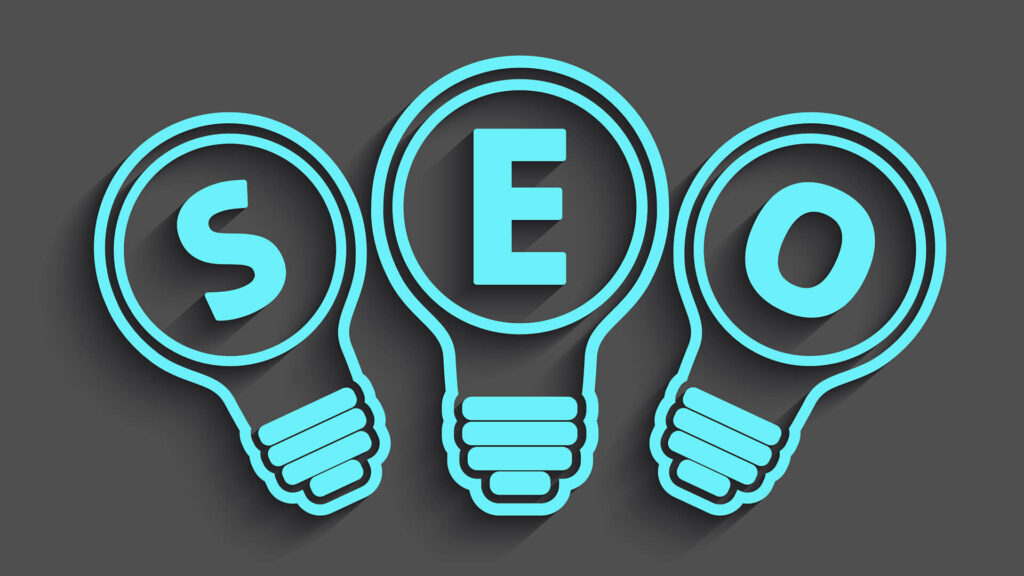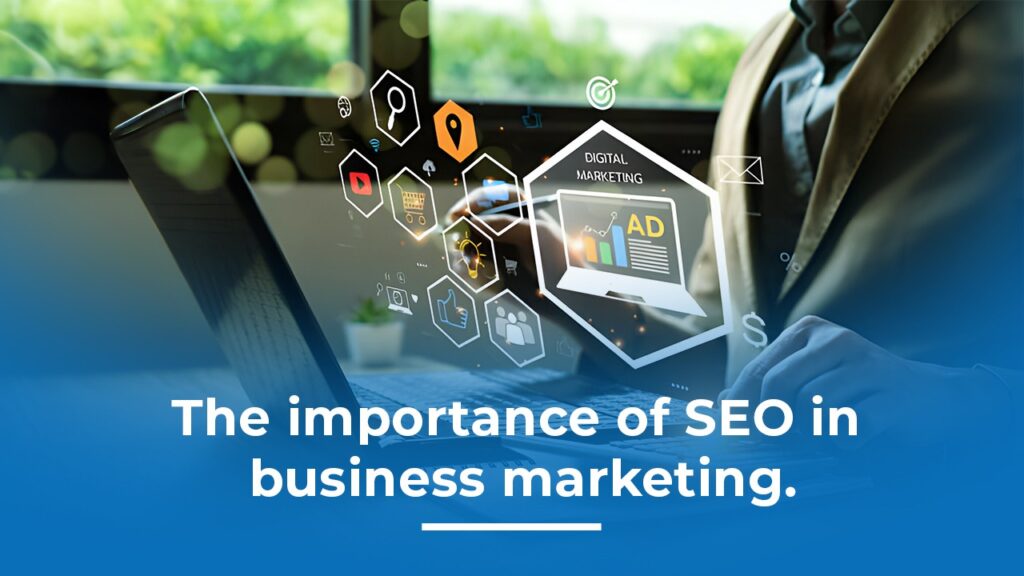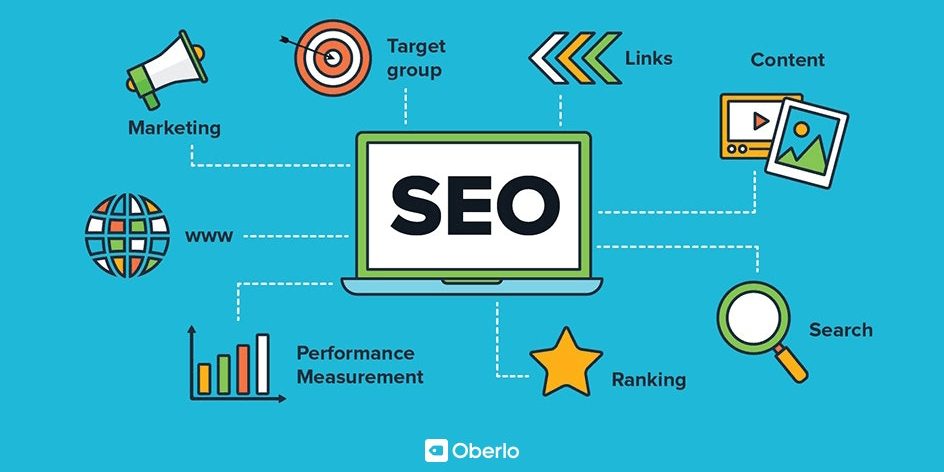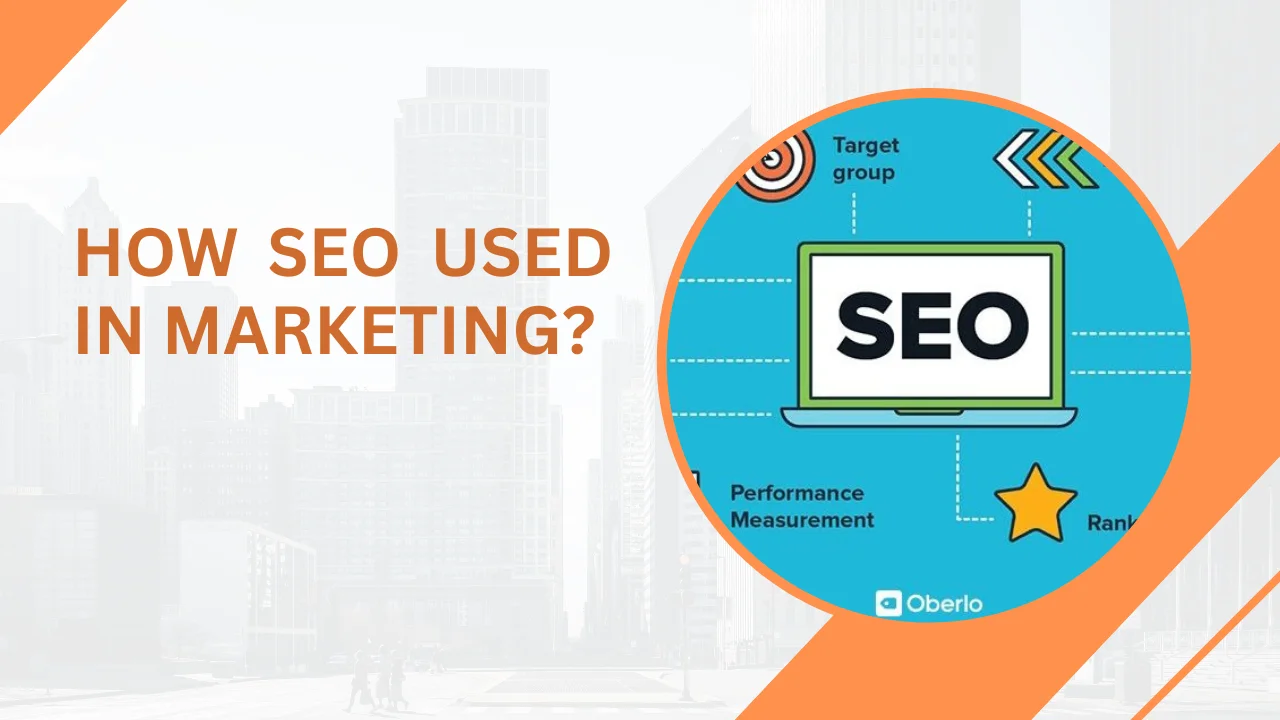In the digital world, competition is high and visibility is everything. That’s where SEO comes into play. SEO used in marketing is one of the most powerful strategies businesses rely on to reach their target audience online. SEO, or Search Engine Optimization, is the process of improving a website’s content, structure, and presence to rank higher on search engines like Google.
When SEO is used properly in marketing, it helps brands attract more visitors, build trust, and convert leads into loyal customers. Unlike paid ads, SEO brings long-term, organic results by targeting the right keywords and optimizing content that answers real user questions. Whether it’s through blog posts, product descriptions, or local listings, SEO used in marketing creates a strong digital foundation for businesses of all sizes. It not only drives traffic but also supports brand growth, online visibility, and return on investment. In today’s digital age, using SEO in marketing is not optional—it’s essential.
What is SEO?

To understand how SEO used in marketing brings success, it’s important to first know what SEO means. SEO stands for Search Engine Optimization. It is the process of improving a website so that it ranks higher on search engine results pages (SERPs), such as Google, Bing, or Yahoo. When people search for something online—like a product, service, or information—they usually click on the top results. SEO helps your website appear in those top spots, which increases your chances of getting more traffic and potential customers.
SEO involves several techniques, such as using the right keywords, writing helpful content, optimizing titles and images, improving website speed, and making the site mobile-friendly. All these steps help search engines understand what your website is about and show it to users who are searching for related topics.
SEO connects your business with the people who are looking for it. That’s why SEO used in marketing is so valuable—it brings organic (free) traffic, builds trust with search engines, and supports long-term business growth. Whether you’re a small business or a large company, SEO can help you stay ahead of the competition and reach your target audience effectively.
Why SEO is Important in Marketing

Understanding the importance of SEO used in marketing is key for any business that wants to succeed online. Today, most customers begin their buying journey with a search engine. If your website is not visible in search results, you’re missing out on potential traffic and sales. That’s why SEO plays a major role in digital marketing strategies.
✅ Increases Website Visibility: SEO helps your website rank on the first page of search engines like Google. The higher your position, the more likely users will click and visit your site. This visibility puts your brand in front of more people who are actively looking for what you offer.
✅ Drives Organic Traffic: With the right keywords and content, SEO attracts people who are already searching for your product or service. This means better-quality traffic without paying for ads. The more relevant your content is, the more traffic you’ll receive.
✅ Builds Trust and Credibility: When your website ranks high and offers useful information, it builds trust with your audience. People trust Google, and if Google trusts your site enough to rank it well, users will too.
✅ Improves User Experience: SEO isn’t just about keywords. It focuses on fast-loading pages, mobile-friendliness, and easy navigation. This improves how users interact with your site, reducing bounce rates and increasing engagement.
✅ Supports Long-Term Growth: While paid ads stop when you stop spending, SEO continues to work. A well-optimized website keeps bringing in traffic over time, supporting your business for the long run.
How is SEO Used in Marketing?

When it comes to growing a business online, SEO plays a major role. SEO used in marketing helps brands connect with potential customers who are actively searching for their products or services. By improving a website’s visibility on search engines, SEO allows marketers to attract quality traffic and increase conversions—without relying on paid ads.
- Keyword Research: Marketers find keywords that people type into search engines and use them in content to match user intent.
- Content Creation: Creating helpful, informative, and engaging content is a big part of SEO. This includes blog posts, landing pages, and product descriptions.
- On-Page Optimization: SEO uses strategies like optimizing titles, meta descriptions, headers, and images to make pages easier to find and understand.
- Technical SEO: Marketers ensure the website loads fast, is mobile-friendly, and has a clean structure that search engines can crawl easily.
- Link Building: Gaining backlinks from trusted websites boosts a brand’s credibility and helps improve search rankings.
- Local SEO: For local businesses, marketers use SEO to target customers in specific locations through Google Maps and local listings.
Benefits of Using SEO in Marketing
When it comes to growing a business online, SEO used in marketing offers powerful advantages. It helps brands stand out, reach more people, and improve overall digital performance. Whether you’re a small startup or a large company, SEO helps you stay competitive and visible. Here are 8 key benefits of using SEO in marketing:
- Increases Website Visibility: SEO boosts your website’s ranking on search engines like Google and Bing. The higher your site ranks, the more likely people will find your products or services when they search online. Better visibility means more potential customers visiting your website every day.
- Drives Targeted Traffic: One of the best benefits of SEO used in marketing is that it attracts visitors who are actively looking for what you offer. These are potential customers with real interest, which increases the chance of turning visitors into buyers and growing your sales.
- Builds Brand Credibility: Websites that appear at the top of search results are often seen as more trustworthy and professional. When your site ranks high, it builds confidence in your brand, helping you earn customer trust faster than competitors who rank lower.
- Offers Long-Term Results: Unlike paid advertisements that stop bringing traffic when your budget ends, SEO provides lasting benefits. Once your site ranks well, it continues to attract organic traffic over time, giving you ongoing value without constant spending.
- Improves User Experience: SEO focuses on making your website faster, easier to navigate, and mobile-friendly. These improvements create a better experience for visitors, encouraging them to stay longer, explore more pages, and come back again.
- Supports Content Marketing: SEO and content marketing work together perfectly. Creating helpful, keyword-rich content helps your website rank higher, making it easier for users to find your blog posts, guides, and product pages.
- Cost-Effective Strategy: Compared to traditional advertising or paid online ads, SEO is very budget-friendly. It targets users who are already interested in your business, which results in better return on investment (ROI) without spending heavily on ads.
- Gives You a Competitive Edge: Many businesses are now using SEO in marketing to grow their online presence. If you don’t use SEO, you risk falling behind. Ranking higher than your competitors in search results means more clicks, leads, and customers for your business.
Examples of SEO in Marketing
Understanding how SEO is used in marketing becomes clearer when we look at real examples. Businesses use different SEO strategies to improve their online presence and attract customers naturally. Here are some common and effective examples of how SEO is used in marketing to boost visibility and drive traffic:
- Optimized Blog Content: Creating blog posts with carefully researched keywords helps websites answer common questions that users search for. This improves rankings and brings targeted visitors interested in the topic or product.
- Product Page SEO: Businesses optimize product descriptions with relevant keywords, clear images, and customer reviews. This makes product pages rank higher in search results and helps customers find what they need easily.
- Local SEO: For businesses targeting local customers, SEO is used by optimizing Google My Business profiles, adding location keywords, and getting positive local reviews. This increases visibility in local search results and maps.
- Backlink Building: Getting backlinks from trusted websites signals search engines that the site is reliable and valuable. Marketers use guest posts, partnerships, and quality content to earn these links.
- Technical SEO Improvements: Ensuring a website loads quickly, is mobile-friendly, and has a clear site structure helps search engines crawl and index the pages better. This technical SEO boosts rankings and improves user experience.
Conclusion
SEO used in marketing is a critical tool for any business looking to grow online and stay competitive. By optimizing websites and content for search engines, businesses can attract more organic traffic, connect with their ideal customers, and increase sales without constantly relying on paid ads. SEO used in marketing works by targeting relevant keywords, improving website performance, and building trust through quality content and backlinks. This creates a strong foundation for sustainable growth and long-term success.
Whether you are a small business or a large company, integrating SEO into your marketing strategy helps improve visibility and ensures your brand reaches people who are actively searching for your products or services. In today’s fast-changing digital environment, mastering how SEO is used in marketing is essential to stand out and achieve measurable results. Investing in SEO not only boosts your online presence but also maximizes your marketing efforts, delivering greater value over time. Therefore, businesses must prioritize SEO used in marketing as a vital part of their growth plan.
FAQs
What is SEO used in marketing?
SEO used in marketing refers to the strategies and techniques that help businesses improve their website’s visibility on search engines. It involves optimizing content, keywords, and site structure to attract more organic traffic and potential customers.
Why is SEO important in marketing?
SEO is important in marketing because it helps businesses reach their target audience without paying for ads. When SEO is used in marketing, it increases website traffic, builds brand trust, and boosts sales over time.
How does SEO work in marketing?
SEO works in marketing by improving how search engines read and rank your website. This includes optimizing keywords, creating quality content, improving site speed, and earning backlinks, which help your site appear higher in search results.
How can businesses use SEO in marketing strategies?
Businesses can use SEO in marketing by researching keywords their audience searches for, optimizing website content, building backlinks, and ensuring their website is fast and mobile-friendly for better rankings.
Is SEO used in marketing only for websites?
While SEO used in marketing mainly focuses on websites, it also applies to other online content like videos, social media posts, and local business listings to improve visibility across different platforms.

